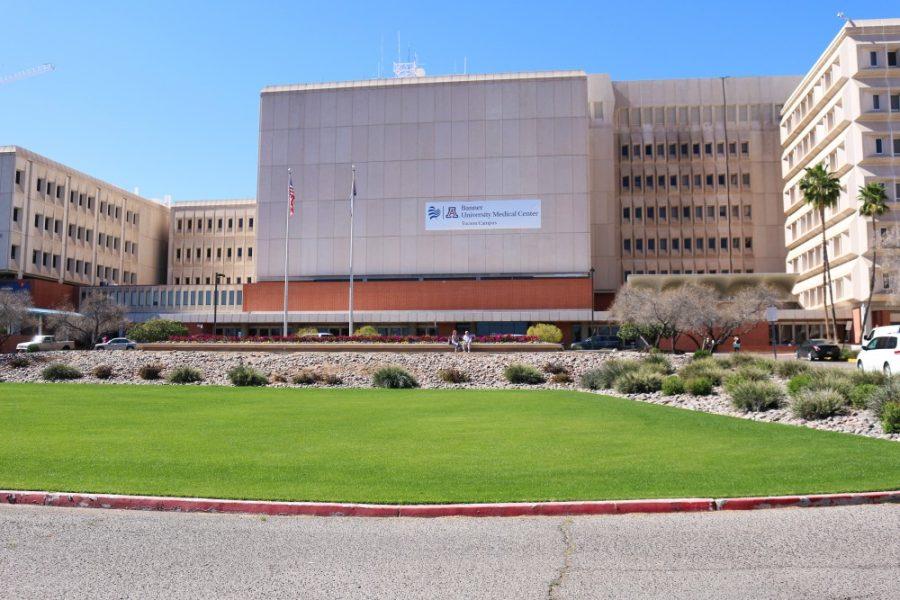Body donations in the state of Arizona are on the rise, opening up the conversation about death and the importance of research on human cadavers.
Every year in Arizona, about 4,000 people who die are whole body donors, according to the Cremation Association of North America.
USA Today named four different programs for whole-body donation in Arizona, and one of them is right here in Tucson. The Willed Body Program at the University of Arizona is a non-profit organization that takes donations.
According to the Willed Body Program website, “anatomical donations are foundational to medical education because they let students learn how the idealized illustrations found in textbooks and models present themselves in the real world.”
Through examining and learning from real cadavers, students are not only taught at a young age the importance of health, but they are exposed to the sensitive idea of human mortality.
Alma Aguirre, a faculty member in the Office of Diversity and Inclusion at the UA, has decided to donate her body to the university when she passes. She is also the Program Coordinator for the Med-Start Program at the UA, which recruits juniors in high school to get credits during the summer by staying on campus for six weeks.
According to Aguirre, students in the Med-Start Program actually take field trips to cadaver labs all over the state and to other colleges like Arizona State University. They are exposed for the first time to actual human bodies and get a jump start on their medical studies. The students have the opportunity to learn about health care careers such as nursing and pharmacy.
On the Med-Start website, it says, “Med-Start helps young people prepare for their future in the health professions by exploring career opportunities and providing college-level coursework in English and science.”
RELATED: One pill a day may keep the HIV away
The Med-Start program offers an advantage to students in high school because it teaches them early on about all the opportunities and challenges that come with studying to be in the medical field. This gives them time to discover if it is really a career path they want travel.
Mirabel Alvarez is an anthropologist and folklorist that studies cultural differences between what people value, fear and understand. She is involved with the Arizona End of Life Care Partnership and Folk Alliance International. Through these organizations and studies, she evaluates and analyzes the relationship between culture and death.
When it comes to burials and traditions, something that is important to consider when thinking about whole body donation is the financial aspect. From a technical point of view, it costs a lot of money to die.
The national median cost of a funeral with viewing and burial for calendar year 2017 was $7,360, according to the National Funeral Directors Association.
“Its hard to talk about death in the United States because there are two extremes: the religious, afterlife, Puritan side, and the market-driven side,” said Alvarez.
On the topic of death, a lot of people don’t consider how much it can cost for traditional burials and services. Participating in whole-body donation is often a cheaper and more practical alternative. After the research has been conducted, the body will be cremated and planted with a tree in the Memorial Garden for families to visit at the UA.
“It is looking at it through the health and science aspect,” Aguirre said. “My husband is Catholic, so he thinks that you have to have a service and have a mass. I don’t really need a service, I don’t need people to come see me when I’m dead. If you want to visit, visit me when I am alive.”
According to Alvarez, in Tucson and Arizona, there are different ways that people choose to grieve and memorialize the dead. Some local expressions are the bicycles along the sides of the road or Day of the Dead. Not everyone grieves the same way.
Death is not easy to talk about in America, and the conversation around death is changing. Due to scientific advances, the ethical lines are becoming blurred and people are changing how they approach mortality.
“The conversation around death has changed a lot recently,” Alvarez said. “A large part of that is people saying that they want more control over death. It is an issue of controversy. Should you have the right to decide more? How you want to die and when you want to die?”
Whole-body donation is a viable option for a growing number of people and it is allowing Tucson and other communities within Arizona and the nation to start looking at death in a different way.
Follow The Daily Wildcat on Twitter









